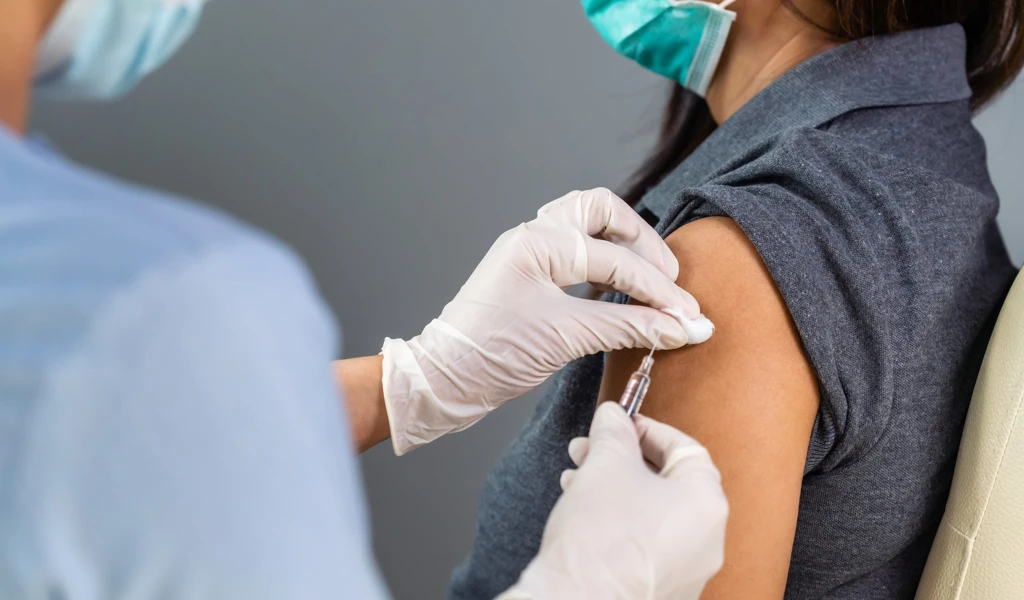OSLO, 10 March 2021 — Governments and global health bodies have expressed support for the Coalition for Epidemic Preparedness Innovations' (CEPI) US$3.5 billion plan to dramatically reduce or even eliminate the future risk of pandemics and epidemics, potentially averting millions of deaths and trillions of dollars in economic damage.
At a launch event earlier today, CEPI set out an ambitious strategy to build a world that is better equipped to deal with pandemics and epidemics. CEPI is now calling on governments, global health organisations and strategic partners to back this critical investment in global health security over the next five years.
Supporters of the plan include the governments of Germany, Norway and Ethiopia; major philanthropies Wellcome and the Bill and Melinda Gates Foundation; the World Economic Forum; global health institutions such as WHO, Gavi and UNICEF; and industry partners.
Effective vaccines have been developed at record speed. CEPI has played a key role in accelerating this development. Through its contribution to COVAX, CEPI is helping people around the world to obtain fair access to these vaccines.
The more we pool our resources, the more likely we are to win the battle against COVID-19 and all kinds of infections... We must make it possible for the world to respond rapidly to epidemics and pandemic threats. As one of CEPI's founding members, Germany will continue to support the Coalition.
Norway is proud to be a founding member of CEPI. With the pandemic, CEPI is more important than ever. Ensuring access to vaccines for all is a necessity, not a luxury. As the emergence of new variants tells us: No one is safe before everyone is safe. The mutations underline the need for a continued investment in vaccine development.
Norway will continue to mobilize around CEPI and other much-needed building blocks in global health. If anything, the pandemic has reminded all of us that we need better preparedness and response. We have focused on this agenda for a long time. This is not the time to give up. You can count on Norway's continued support.
Ethiopia is a proud member of CEPI and fully supports its mission to speed up the development of vaccines against emerging epidemic threats. We were the first African nation to partner and invest in CEPI and we hope that, over the next year, many others will follow.
We have seen the power of science to meet the challenge of COVID-19 and that must go hand in hand with a commitment to equitable access because no one is safe until everyone is safe. Looking forward, Ethiopia will work with CEPI to strengthen Africa's capacity to prevent, detect, and respond to emerging infectious diseases.
As we look toward the future, CEPI is fully engaged in addressing two profound questions: How can the world end the pandemic? And how can the world emerge stronger, more united, and more prepared for future threats?
Reducing the risk of future pandemics and epidemics is a critical global issue that will benefit every single human on earth. The backing from governments and global health bodies for CEPI's plan is testament to the importance of this issue, and the unique role that CEPI plays in this global effort. Our five-year plan is ambitious, yet achievable, and we look forward to working with everyone who has backed us so far to protect the world from the devastating impacts of pandemics and epidemics,
A COVID-19 action plan
CEPI has already played a central role in the global response to the pandemic, creating the world's largest portfolio of COVID-19 vaccines and helping to make 2 billion doses accessible to 190 countries through COVAX in 2021. However, the rapid emergence of new variants of the virus that causes COVID-19 has huge implications for vaccination campaigns across the world and the speed with which we can end this pandemic.
CEPI is therefore urgently seeking to mobilize US$1 billion in 2021 of the $3.5 billion plan, so the organization can carry out critical R&D that will enable us to meet the challenges of this rapidly evolving pandemic and facilitate equitable access to safe and effective vaccines.
If we are to secure the gains we have made in the past year, and end the acute phase of this pandemic as soon as possible, we must move aggressively to control the spread of these variants. CEPI will not delay in starting this vital work immediately and today announced two new partnerships (with VBI Vaccines and SK bioscience) to develop novel vaccines which specifically target variants of concern, and which can be made globally accessible through COVAX.
Initiating development of an ‘all-in-one' vaccine against coronaviruses
CEPI will by the end of March 2021 also launch a Call for Proposals to provide US $200m funding for an ‘all-in-one' vaccine that could protect against a broad range of coronaviruses, including SARS, MERS-CoV and SARS-CoV-2.
SARS-CoV-2 is the seventh human coronavirus to be identified, but it is highly unlikely to be the last. The coronaviruses that cause SARS and MERS have far higher mortality rates than COVID-19, but fortunately are significantly less transmissible. The emergence of a coronavirus combining the transmissibility of COVID-19 with the lethality of SARS or MERS would be utterly devastating, so a successful all-in-one coronavirus vaccine would be a powerful tool in preventing the devastating human and economic costs of future coronavirus pandemics and epidemics.
Reducing the risk of future pandemics and epidemics
In addition to the urgent need to address the challenges of the current pandemic, CEPI today laid out a six-point strategy to help ensure the world emerges stronger and better prepared for the next outbreak.
CEPI will work to prepare for known epidemic and pandemic threats, transform the response to the next novel threat, and connect and enhance global collaboration to strengthen global preparedness. CEPI will work to substantially reduce global epidemic and pandemic risk by:
1.Strengthening our defenses against COVID-19 and reducing the risk of future coronavirus pandemics, by optimizing our current vaccines, addressing variants of concern, developing next-generation COVID-19 vaccines, and initiating the development of broadly protective or universal coronavirus vaccines.
2.Developing vaccines for known threats, to include completing the development of vaccines for Chikungunya, Lassa Fever, Nipah, and MERS, advancing the development of vaccines against Rift Valley Fever, and completing additional clinical trials to broaden the populations eligible for the Ebola vaccines.
3.Working to compress vaccine development timelines to 100 days by optimizing the capabilities of rapid response platforms including mRNA, preparing clinical trial networks to respond rapidly to new threats, working closely with global regulators to streamline regulatory requirements, and linking manufacturing facilities to enable rapid production of pandemic vaccines.
4.Producing a library of prototype vaccines and other biological interventions against representative pathogens from critical viral families. The "library of prototype vaccines" will be developed through phase 1 clinical trials and use rapid response platforms that will allow rapid adaptation if related viruses emerge.
5.Establishing global networks for lab capacity, assays, and preclinical models that are critical for rapid vaccine development and developing arrangements with existing national or regional clinical trial and manufacturing networks.
6.Supporting the efforts of low- and middle-income countries to take full ownership of their national health security by developing the infrastructure and expertise to conduct epidemiological and clinical studies, support technology transfer, and establish national and regional vaccine manufacturing.
CEPI's $3.5 billion investment case — The Urgency of Now. Turning the tide against epidemic and pandemic infectious diseases
The full investment case may be accessed here.
Today's launch event can be viewed here.
Event transcript, available here



